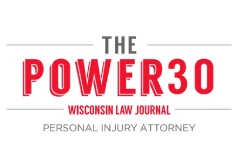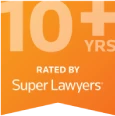Questions & Answers
$800K
Car Crash
$528K
Premises Liability
(Verdict at Trial)
$500K
Car Crash
$450K
Car Crash
$6.0M
Dog Bite Attack
(Verdict At Trial)
$3.0M
Premises Liability
$1.15M
Trucking Crash
$1.M
Trucking Crash
$800K
Car Crash
$528K
Premises Liability
(Verdict at Trial)
$500K
Car Crash
$450K
Car Crash
$6.0M
Dog Bite Attack
(Verdict At Trial)
$3.0M
Premises Liability
$1.15M
Trucking Crash
$1.M
Trucking Crash
Chances are, you’ve never had to consider hiring a personal injury attorney before. If this is the case, we know you have a lot of questions about what happens next. Legal action is no small matter, but if you or a loved one has been seriously injured in an accident or by the negligence of another, it’s time to hire an attorney who has the experience to see your case through to settlement or trial.
We’re ready to talk to you about your case or answer any further questions, please don’t hesitate to call us at (855) 434-5526.
Personal injury attorneys are asked this question more than any other. It’s a legitimate question. Injury attorneys in Wisconsin usually charge a contingent fee of 1/3 of the settlement or verdict in addition to costs. Why hire a plumber if you can fix your leaky faucet yourself?
Surprisingly, Allstate Insurance has helped answer the question. Allstate’s own website states “represented claims settle for 2-3 times more than unrepresented claims.” (See page C000011298). Allstate goes on to urge their adjuster to convince injured victims to NOT hire an attorney.
Why do represented victims of car accidents, motorcycle accidents or other personal injury matters recover more than unrepresented victims? Because personal injury attorneys know the law and leave no stone unturned. The right personal injury attorney will make sure that the injured person receives the compensation they are due. Take a look at my earlier comments about what a case is worth.
When you are involved in a car accident or other personal injury matter you should usually hire an attorney soon after the collision/incident. When a victim hires a lawyer this does NOT mean that a lawsuit has been filed.
In Wisconsin, a lawsuit is filed when a Summons and Complaint are filed with a County’s Clerk of Courts. After the Summons and Complaint are filed and the filing fee is paid these documents must be served on the defendant(s). From the date of this filing, depending on the County, it may take up to two years before the victim of a car accident’s case is decided by a jury.
When a lawsuit is filed a Judge is assigned to the case. One of the first things the Judge will do is schedule a hearing date to set the schedule for the case. At this point the Judge and attorneys set deadlines for witnesses, depositions, expert doctor reports, and motions. If a lawsuit were filed immediately after a collision it may be difficult to make sure that the injured victim gets full compensation allowed by law for all of his/her injuries given the Schedule set by the Judge. In addition, once the lawsuit is filed the costs of the case can increase drastically.
The odds of a personal injury victim having to file suit are low. Of the personal injury cases I have handled, about 90% settled before filing a lawsuit.
In the end, this is the benefit of hiring a lawyer. You will have someone fighting for you from day one to ensure you get the compensation that Wisconsin Law allows. If it is necessary, you will have an advocate in court, but more than likely the lawyer will help you avoid going to court to get compensation for your personal injuries.
Whenever someone asks about the value of a claim or what we will “go after” for compensation I always say something like “the law allows us” or a “jury would be allowed to consider” or “we could ask a jury.”
I don’t use these phrases to scare clients and make them think we are going all the way to a trial. In fact, the vast majority of my clients never see a courtroom. I say these things because ultimately, the only way to force an insurance company to compensate an injured victim is by taking the case to a jury. Once the jury deliberates and decides on a verdict that is what the insurance company has to pay.
Settlements made pre-suit or after a suit is filed are all based on guessing what a jury would award. That is why you really hire a lawyer. You hire a lawyer to give you an educated guess as to what a jury would award considering the law and the facts.
No one knows what a jury would award. But, who better to give you advice on the value of a personal injury matter than an attorney who has dedicated his career to knowing what amount of money a jury would use to compensate an injured person and his/her family.
This is one of the most commonly asked questions from victims of car accidents, motorcycle accidents, or other personal injury matters. Many times after trying to handle a case on their own someone will come to me and tell me what their health insurance paid, their wage loss and expenses and say the insurance company wants to settle but they don’t know what the case is worth.
My most common answer is an honest one: I need more information. We have to look at what the law says must be used to measure the losses associated with a car accident, for example. In Wisconsin the law says that if someone causes a collision then he/she is responsible for all damages by paying a fair amount of money. An accident victim must receive compensation for
- past medical expenses
- past wage loss
- past pain suffering and inconvenience and other miscellaneous expenses like mileage and damaged property.
If the injuries are more serious (permanent injuries) then Wisconsin law states that the accident victim must receive compensation for 1,2 and 3 along with
- future medical expenses
- future wage loss, and
- future pain, suffering, and inconvenience.
When potential clients ask what their case is worth it is difficult to give an educated opinion without the correct information. It depends on the injuries, types of treatment, duration of treatment, venue, and personal data.
Many personal injury victims don’t think to include mileage. Or victims include only what health insurance paid and NOT the actual medical bill from the medical provider. These items can often total large amounts of money that will change the compensation they are due under Wisconsin law.
Have a professional photographer take photos of a personal injury victim. In every case that involves scars, permanent bruises, or disabilities, because the at fault insurance company will ask for pictures to evaluate the claim.
Why not have the injured victim just meet with the at fault adjuster? Many times the adjuster is in some far off office, hours from injured victim. Usually, insurance companies have “round table” discussions about these types of injuries. This means that a bunch of adjusters will get together one day and pass around photographs of scars, permanent bruises etc. and give their opinion of the “value” a jury would award for the injury. That is how at fault adjusters come around to offering a personal injury settlement.
An injured party needs to have photos that truly represent the injuries. Just as if they were standing there in the conference room with the adjusters “round tabling” the claim.
Don’t get me wrong, nowadays many digital cameras will do a great job and take quality pictures. But, in order to give the at fault adjuster as true a representation of the injuries I recommend a professional photographer.
If you were in a collision and the at fault driver had insurance, I’m sure you’ve asked yourself this question, because one of the first questions out of the at fault insurance adjuster’s mouth is, “Can I record a statement?”
My standard answer to this questions is no- don’t give a statement. If the at fault insurance company insists on a statement, you should wait until you hire a lawyer before giving a statement. You hire a lawyer to stand by your side and serve as your advocate through the entire process. It is best to not give a statement before having that advocate by your side.
Insurance companies acknowledge that victims with attorneys settle for 2-3 times more than unrepresented victims.
Remember, insurance companies are in the business of making money. That means they want to take in premiums and pay out as little as possible. That’s just the basic economics of insurance. So, insurance companies teach their insurance adjusters how to make sure they pay out as little as possible. That starts right away after the collision with the recorded statement.
This is especially important if liability it at issue. The at fault insurance wants to pin as much fault on the person seeking compensation as possible. The facts are still the facts but many times confusion, pain meds, or frustration can hinder an injured person’s ability to clearly describe what happened.
If you are involved in a collision I recommend talking with an attorney before you give that statement to the at fault insurance company. You will be glad you did!
In almost all accidents – auto, motorcycle, dog bite, or other personal injury cases – an insurance company will ask that the injured victim sign a Release of All Claims. That document means exactly what it says. It gets the insurance company off the hook for ALL claims (i.e. injuries, wage loss, mileage etc.), past, present, or future.
A Release may have language similar to the following:
“For and in consideration of the sum of $____________cash in hand paid, the receipt and sufficiency of which is hereby acknowledged, the undersigned (name of plaintiff) does hereby release, acquit and forever discharge (name of defendant and insurance company) from any and all losses, injuries, claims, demands, actions, causes of action, payments, costs, expenses, damages, liability, or grievances of any nature whatsoever which he/she has had, which he/she may now have, or which he/she may hereafter have, which in any manner pertain to, relate to, or arise from any personal injury known and unknown, property damage, known and unknown, or any other loss of any nature whatsoever sustained as a result of the aforesaid vehicular accident which occurred on or about (date) involving the vehicle driven by said defendant and the vehicle driven by said plaintiff”.
You never want to sell yourself short, especially when it concerns your wellbeing. Injuries can linger. If you accept a settlement days after the collision, you won’t be able to get your next doctor’s visit and the lost wages and mileage paid by the at fault insurance company. Keep that in mind when you are dealing with the insurance industry.
Insurance companies aren’t able to build multi-million dollar buildings, gigantic waterfalls, walls of art, and other expensive things by giving away compensation for injuries. Their job is to pay as little as possible. A personal injury attorney’s job is to make sure an injured party obtains compensation for everything that the law allows.
In personal injury law, once a lawsuit is filed time seems to slow to a crawl. In Wisconsin, defendants have 45 days to answer; judges can often take as long as they want to call a hearing to set the schedule of the case.
Once the scheduling hearing comes along the deadlines could still be a year away.
There isn’t much a plaintiff can control concerning a lawsuit’s timetable. The things that a plaintiff’s attorney can control must be in the plaintiff’s best interest, i.e. move the case along.
One quick, and relatively easy, way to speed up the process is to file the plaintiff’s witness list with the Summons and Complaint. This can save up 60 or 90 days in the litigation process. Also, serve your interrogatories and requests for production of documents with the Summons and Complaint. The sooner the plaintiff has important information about the defendant the sooner depositions can be taken, and the sooner the trial will happen.
Compensation for injuries suffered from drunk drivers comes from two main areas: insurance companies for the at fault party (or uninsured motorist coverage which stands in the shoes of the at fault party) and restitution (the criminal courts). I wrote an article recently about Restitution for victims of drunken driving collisions. Here’s a section from it:
“In Wisconsin a few years ago, 326 people died and 6,221 were injured in alcohol-related traffic crashes. Approximately 42 percent of all fatal crashes in Wisconsin involved alcohol. Helping the victims of drunk drivers involves knowledge of civil and criminal procedure. With restitution you may be able to obtain compensation for medical bills, wage loss, mileage and other “certain” damages well in advance of a civil settlement or trial.”
WIS. STATS. 973.20
A judge imposing sentence is required to order full or partial restitution unless he finds a “substantial reason not to do so.” Trial courts should be liberal in finding whether an injury relates to a defendant’s conduct. A trial court may take a defendant’s entire course of conduct into consideration”including” all facts and reasonable inferences concerning the defendant’s activity related to the “crime” for which [he] was convicted, not just those facts necessary to support the elements of the crime.
The causal link for restitution purposes is met “when the defendant’s criminal act set into motion events that resulted in the damage or injury.” Where the crime results in personal injury, the restitution order may include all “special damages.” (e.g. medical and related expenses, physical therapy, and mental health care, lost income, and reasonable out of pocket expenses).
Many years ago (kind of like: long, long ago in a galaxy far, far away) I was a general practice lawyer. That means that I did it all: I drafted wills, closed real estate deals, reviewed corporate papers, etc. Luckily, back then I still concentrated on lawsuits related to all of these things. I was the attorney the firm would send when Jim (73) was sued by his brother Tom (71) because their mother (95) passed away without a will and her clothes had to be equally divided (I actually handled a case very similar to that scenario). Anyway, I digress.
My point is that many times someone will have a “family lawyer” that handles certain things like a will. That lawyer will hear, “On my way here, to sign the will you drafted, I was involved in an auto accident. Can you help me out?” That person then wonders why the attorney declines and refers them to another lawyer. They were confusing their family lawyer with a personal injury attorney, but family lawyers do not go to court and handle auto accidents or dog bites.
I’ve been lucky enough to have received a great number of referrals over the past few years from lawyers who don’t concentrate on personal injury matters. Motorcycle and auto accident laws are unique. Helping someone who is suffering from a lifelong scar or serious injury is pretty specialized, too.
When I was a general practice litigator I would refer specialized cases to attorneys who only practiced in these areas of the law. I remember one of my high school teachers would use the adage, “Jack of all trades, master of none.” That applies to lawyers too.
Don’t feel put out when your lawyer refers you to another attorney. They are doing what is in your best interest. Don’t be surprised if you come to me wanting a will drafted and I refer you to right back to your family lawyer. I’m a litigator now. Remember, I drafted wills long, long ago in a galaxy far, far away.
Since we are a summer vacation hot spot many out-of-towners travel to and through Wisconsin. Unfortunately, some of these people get in car accidents, attacked by dogs, get hurt on other people’s property, and suffer other personal injuries.
If you are injured in Wisconsin and need to file a lawsuit you will need the assistance of a Wisconsin Personal Injury Attorney. Attorneys from other states may be able to assist in pre-suit negotiations, but once a lawsuit is filed you’ll need someone who is licensed to practice law in Wisconsin.
Often an out-of-towner has already hired a lawyer whom they trust from there own state and want to continue to work with that attorney. This is where co-counsel relationships apply. I’ve worked with a number of attorneys from other states in situations like this. We can help out of state attorneys to appear in court even though they aren’t licensed in Wisconsin. They still need a Wisconsin attorney’s help to obtain what is called a Pro Hac Vice appearance.
In any event, if you are not from Wisconsin but were injured in Wisconsin please make sure you get the assistance of a serious injury attorney. Feel free to give them my name if you need help navigating the courts in Wisconsin. I’m at your service.
You’d be surprised how many times I hear this question. My usual follow up question is, “Are you still in pain?” If the answer is yes, you should go to the doctor to make sure everything is going as planned and if there is anything else you can do to aid in your recovery.
Some people feel guilty about going to the doctor- they don’t want to take up the doctor’s valuable time or rationalize not going by thinking someone else might be injured worse.
When you are involved a car accident, motorcycle collision or some other injury the law in Wisconsin says that you must be treated to the condition you were in before the collision. Medical records are reviewed to see whether you are recovered from your injuries. Doctors help injured people. If you don’t go to the doctor to get better or to follow up with your injuries, how will anyone know if you have gotten better or if you are worse than before?
In short, go to the doctor if you are having problems. Doctors are there to help. Let them.
I hear this question quite often. It’s usually followed by, “Why can’t I just go to my doctor’s office and get them?”
Honestly, you can. I’ve had clients get their own medical records, but I only recommend a client get their own medical records with our help. Why? Because we always ask for “certified” medical records.
Certified medical records are needed if you go to trial. So, instead of ordering “regular” medical records (and getting charged for them) and then having to order “certified’ records later on (and getting charged for them), we just ask for certified records right away.
Personal injury attorneys pay the costs of these records. We only get paid back for these costs if we recover compensation for the injured victim. We don’t charge interest on these costs.
It is best to call your attorney as soon as you receive any documents from your health insurance, auto insurance, or any government insurance (e.g. Medicaid or Medicare).
When someone is involved in an auto accident, motorcycle accident, slip and fall, truck accident, or any other personal injury their health insurance or auto insurance will most likely have the right to get paid back from the at fault party.
Think of it this way. Let’s say you are driving your car and a tree suddenly falls onto the road in front of you. You hit the tree and are injured. No one is at fault for the collision. Your auto insurance policy (med pay) and health insurance will pay for the medical care. That’s why they exist- they don’t expect anyone to pay them back.
On the other hand, if you are driving a car and are rear ended by someone else then someone IS at fault and they are responsible to pay your medical expenses.
Your health insurance or auto insurance (med pay policy) will pay the bills as they are due. Your policy most likely says that they have a contractual duty to pay the medical expenses, but your policy also probably says that they will pay with the understanding that once you obtain compensation from the at-fault party you will pay health insurance or your auto insurance’s med pay back.
In essence, they pay the bills so you can get the care you need and so the doctors don’t come after you directly. They will then send “reminder letters” called Lien Letters or Subrogated Party letters to remind everyone that once the case is settled they want to get paid back.
I strongly encourage all of my clients to submit their bills to their health insurance first. Then, if they have co-pays or out-of-pocket expenses submit these amounts to their auto insurance.
You are probably wondering why the at-fault party doesn’t pay your medical expenses right away. Good question. The short answer is that the at-fault party in a collision won’t pay until they receive re-assurance that they will never have to pay again (i.e. a signed release from the injured party). The at-fault insurance company almost never pays what they are responsible for until you are finished with treatment.
The insurance company doesn’t want to part with their money unless they have to. Let me try to explain:
When someone is involved in a car accident, slip and fall, dog bite, or other personal injury matter there are a few questions I am asked almost every time. Let’s assume I received a call from a client who was in an auto accident. The client tells me that they went to the hospital and the bills were submitted to the at-fault party’s insurance but weren’t paid. Why? It’s their fault. Why submit the bills to the at-fault party’s insurance if they won’t pay them right away? They are responsible; they said so at the scene of the collision.
I agree with the idea behind all of these questions. Ideally, the at-fault party would pay the bills as they are incurred. The hospitals get their money right away and the victim’s credit doesn’t get ruined. However, my experience is that insurance companies won’t pay until they have a guarantee that the victim won’t ask for more money later. They also don’t want to pay hoping you’ll go away, not wanting to deal with the hassle of the insurance company run-around.
When it is time to settle a personal injury claim, you need to make sure you hire an attorney who will leave no stone unturned. In Wisconsin, you have the right to compensation for past pain and suffering, medical expenses, mileage to the doctor, past lost wages along with future pain and suffering, future loss of earnings capacity, and future medical expenses.
How do you keep the bill collectors at bay while you recover from your injury? Give me a call or email me and I’ll be happy to discuss this with you. The quick answer is make sure you have insurance and contact a personal injury attorney.
If you are hurt, please go to a doctor. Get help. The most important thing is for you, the victim, to get better.
When someone under 18 (minor) is injured in an auto accident, dog bite, slip and fall, or product liability and the case is settled before a suit is filed, it is the INSURANCE COMPANY’S choice to have the settlement approved by a Circuit Court Judge. Why? Because the insurance company wants the personal injury settlement to be finalized. They want to close their file so the minor cannot come back when he/she turns 18 and file a lawsuit with an attorney to ask for additional money.
The reason I mention all of this is the tax ramifications. It’s important that the lawyer that settles the case does not put the funds into his/her attorney trust account or anyplace else for that matter. The personal injury settlement funds need to be sent from the insurance company directly to the annuity company that will be handling the disbursement of the funds.
Milwaukee
Practice Areas
Wauwatosa
Practice Areas
What Our
Clients Say
“Jon, Of the many professionals I had spoken with, to represent me and look to for support, you took me totally by surprise with your approach of compassion, concern, professionalism and direction for my individual situation. This period of my life and its new challenges has been very humbling and introspective for me. Thank you for your spirit of compassion and care that you have provided for me in a world that hopefully will not become increasingly more difficult to do so in.”
- Richard















